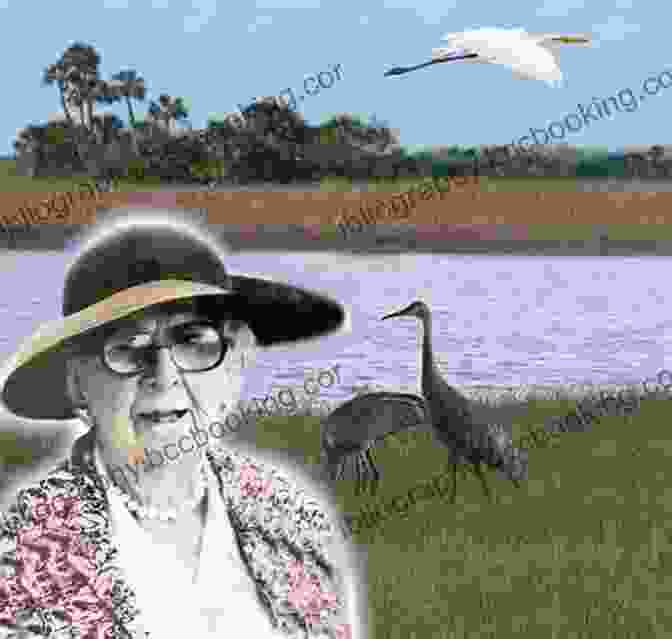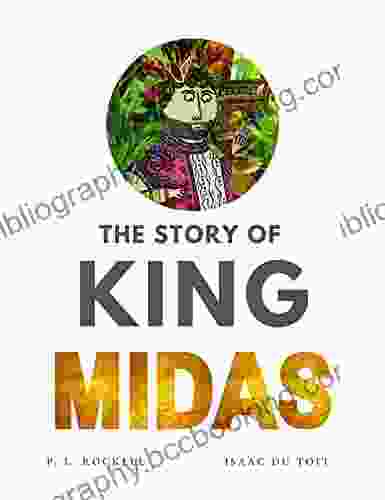Marjory Stoneman Douglas, a pioneering environmentalist, writer, and advocate, left an indelible mark on the American conservation movement throughout the 20th century. Her unwavering dedication to protecting the delicate balance of nature propelled her into the annals of conservation history, earning her the title of "Grand Dame of the Everglades."
4.3 out of 5
| Language | : | English |
| File size | : | 7320 KB |
| Text-to-Speech | : | Enabled |
| Screen Reader | : | Supported |
| Enhanced typesetting | : | Enabled |
| Word Wise | : | Enabled |
| Print length | : | 812 pages |
Early Life and Education
Douglas was born in Minneapolis, Minnesota, on April 7, 1890. From a young age, she exhibited a keen interest in nature, spending countless hours exploring the nearby woods and prairies. Her love for the wilderness prompted her to pursue a degree in botany at Wellesley College, where she graduated in 1912.
Journalistic Career
After graduating, Douglas embarked on a successful career as a journalist. She wrote for the Miami Herald for over 40 years, using her platform to highlight the importance of conservation and environmental stewardship. Her captivating articles, often accompanied by stunning photographs, resonated with readers and sparked a growing awareness of environmental issues.
The Everglades Crusade
One of Douglas's most notable achievements was her tireless advocacy for the Everglades, a unique subtropical ecosystem in southern Florida. In the 1930s, when the Everglades faced threats from drainage projects and development, Douglas launched a relentless campaign to protect this natural treasure. She wrote countless articles, gave speeches, and rallied public support to save the Everglades.
Her efforts culminated in the establishment of Everglades National Park in 1947. Douglas's unwavering determination and exceptional writing skills played a pivotal role in securing the park's protection, ensuring the preservation of this iconic ecosystem for generations to come.
Environmental Activism
Beyond her work on the Everglades, Douglas became an outspoken advocate for environmental protection on a national scale. She was instrumental in the formation of the Everglades Club, a non-profit organization dedicated to conservation. She also served as the first female president of the National Audubon Society from 1952 to 1955.
Through her tireless advocacy, Douglas raised awareness about pressing environmental issues, including water conservation, wildlife protection, and the impacts of pollution. She inspired countless individuals to embrace environmental stewardship and work towards creating a more sustainable future.
Legacy and Impact
Marjory Stoneman Douglas passed away in 1998 at the remarkable age of 108. Her life and work continue to inspire and motivate environmentalists and conservationists worldwide. Her passion for nature, coupled with her unwavering resolve to protect it, left an enduring legacy on the American environmental movement.

Douglas's contributions to environmental conservation were recognized with numerous awards and honors. She received the Presidential Medal of Freedom, the highest civilian award in the United States, in 1993. In 2015, the U.S. Congress designated the Marjory Stoneman Douglas Wilderness Area within Everglades National Park as a tribute to her lifelong dedication to the conservation of this vital ecosystem.
Marjory Stoneman Douglas, a true pioneer of the American environmental movement, dedicated her life to protecting the natural world. Her influential writings, unwavering activism, and unwavering passion for conservation left an immeasurable impact on the conservation of the Everglades and beyond. Her legacy serves as a testament to the power of one individual to make a lasting difference in the fight for environmental protection.
The story of Marjory Stoneman Douglas serves as an inspiration to all who believe in the importance of protecting our planet for generations to come. Her life and work remind us that through dedication, perseverance, and a deep love for nature, we can create a more sustainable and harmonious relationship with the environment.


























































































